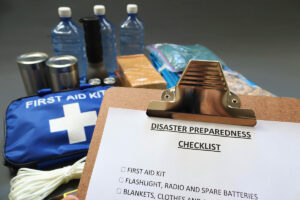Laughter may be the best medicine, but a dash of kindness helps, too.
For the month of February, we are focusing on love, for others and for ourselves.
A new study by two Ohio State professors showed that random acts of kindness can help the giver with depression, anxiety and stress. By focusing on others, those suffering often think less about their own feelings and more about others. Not to mention the benefits for the recipient – who doesn’t like to hear words of support, enjoy a home-baked treat, or have a helping hand with chores.
David Cregg as part of his PhD dissertation, worked with Jennifer Cheavens, professor of psychology at Ohio State on this study, which was published recently in The Journal of Positive Psychology.
The study found that performing acts of kindness led to improvements not seen in two other therapeutic techniques used to treat depression or anxiety.
Most importantly, the acts of kindness technique was the only intervention tested that helped people feel more connected to others, said study co-author Cregg. “Social connection is one of the ingredients of life most strongly associated with well-being. Performing acts of kindness seems to be one of the best ways to promote those connections,” Cregg said.
“We often think that people with depression have enough to deal with, so we don’t want to burden them by asking them to help others. But these results run counter to that,” Cheavens said. “Doing nice things for people and focusing on the needs of others may actually help people with depression and anxiety feel better about themselves.”
The study involved 122 people in central Ohio who had moderate to severe symptoms of depression, anxiety, and stress. After an introductory session, the participants were split into three groups. Two of the groups were assigned techniques often used in cognitive behavioral therapy (CBT) for depression: planning social activities or cognitive reappraisal.
Members of the third group were instructed to perform three acts of kindness a day for two days out of the week. Acts of kindness were defined as “big or small acts that benefit others or make others happy, typically at some cost to you in terms of time or resources.”
Some of the Random Acts of Kindness that participants later said they did included baking cookies for friends, offering to give a friend a ride, and leaving sticky notes for roommates with words of encouragement.

Participants followed their instructions for five weeks, after which they were evaluated again. The researchers then checked with the participants after another five weeks to see if the interventions were still effective.
The group participating in Random Acts of Kindness showed an advantage over both social activities and cognitive reappraisal by making people feel more connected to other people, which is an important part of well-being. In addition, this group showed greater improvements life satisfaction and symptoms of depression and anxiety, results showed.
Cheavens noted that just participating in social activities did not improve feelings of social connection in this study. “There’s something specific about performing acts of kindness that makes people feel connected to others. It’s not enough to just be around other people, participating in social activities,” she said.
And beyond traditional CBT, acts of kindness may have additional benefits in creating social connections, Cregg said. “Something as simple as helping other people can go above and beyond other treatments in helping heal people with depression and anxiety,” he said.
So go ahead, even if you are feeling, down – do something nice for someone and you’ll feel better!

































Nice article!! and yes this does work
I enjoyed this story and it reminds me to keep on doing what I do. Thanks, I’ll spread the word and spread the action.
Really needed to hear, or read, this. Feeling sorry for myself this morning and needed a refocus. Thank you.
Your totally right and love what you said. We all need it and to find goodness in our hearts and minds